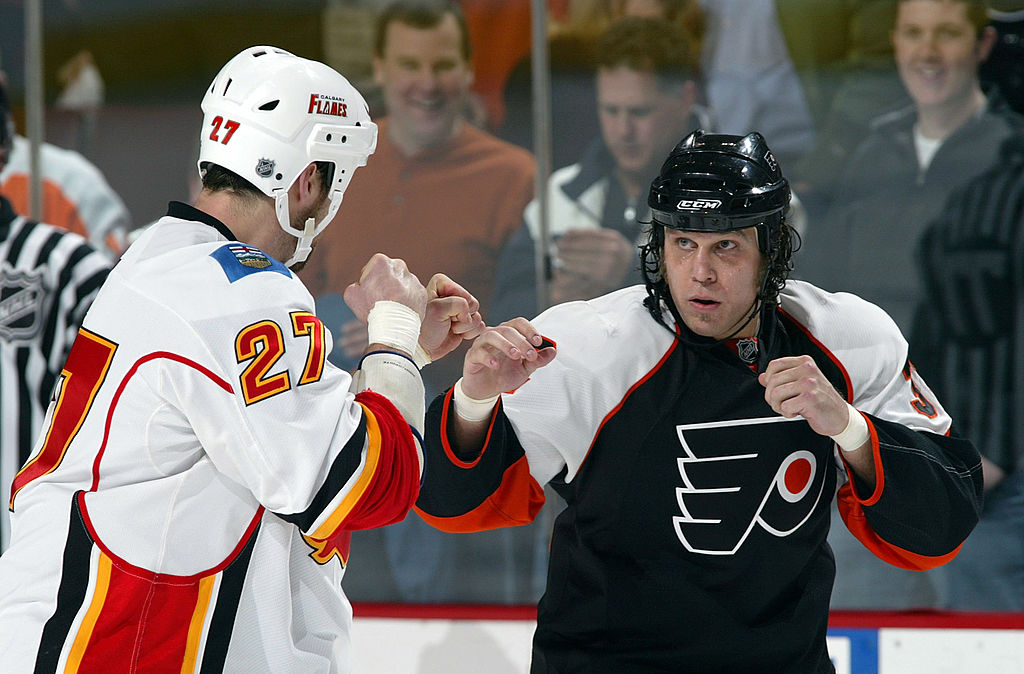Athletes share their journeys with psychedelics

Psychedelic medicine, and psilocybin in particular, has shown promise in many studies; in fact, most of them have shown revolutionary results from just a single dose. Because of these benefits, many people have used the drug to self-medicate, and government officials are considering providing medical access to veterans to treat PTSD and other ailments.
While being an athlete and a veteran are two very different career paths, the former group also deals with deep-rooted emotional and physical traumas, and many turn to self-medicating using alcohol and prescription drugs. ESPN’s new Peace of Mind movie shows what can happen when these athletes are exposed to psychedelic alternatives.
RELATED: Wall Street pulls out of psilocybin trial
Who benefits from psychedelic medicine?
Riley Cote played four seasons in the NHL with the Philadelphia Flyers, during which he was known as an enforcer. He got in over 50 fights during his career—the film shows clips of his devastating punches and the overwhelmingly positive fan reception—and often ended up concussed and battered.
In 2008, he met his match for the first time when he fought Donald Brashear, who cracked his sinus. Cote said he thinks he never recovered from the injury—instead, he began to self-medicate with alcohol and opioids, leading himself into a deep depression. He retired two years later.
He then turned to using cannabis, and eventually read a book about psilocybin’s potential medical benefits. In 2020, he became a paid advisor with the Wake Network, a Canadian company that hosts legal psychedelic therapy sessions in Jamaica.
Cote sought to help other professional athletes by introducing them to psilocybin and bringing them on a retreat. Among the names were Justin Renfrow—a longtime professional football player who was struggling with the recent death of his grandmother—Mike Lee—a retired boxer who faced severe concussions, an autoimmune disease, and suicidal ideation—and Steve Downie—another retired NHL enforcer who slipped into substance abuse after more concussions than he could count.
During the ceremony, participants took three grams of psilocybin mixed with juice. Emotions seemed to pour out of Renfrow, Lee, and Downie, and when they spoke about the experience the next morning, it was clear they felt different after using the substance.
Downie gave a particularly powerful testimony. Holding back tears, he said, “I think the last time I got knocked out, man, my brain stopped working. And that was scary as s—. I’m drinking every day. I’m doing drugs…But I think I learned what’s causing problems and the trigger points in my journey.”
He continued, “It made me cry. It made me feel good…I do have control. I can control this. I’m gonna go home and be a better father and stay around for my kids. Deal with my concussion problems the best that I can.”
History of psychedelics
Peace of Mind also shows viewers the history of psychedelic medicine and research. According to the ESPN film, during the 1950s and 60s, psychedelic substances like psilocybin and LSD were intensely studied and showed medical promise for treating a multitude of conditions. Eventually, though, the drugs began to be used and abused recreationally, leading to adverse effects—soon, psychedelic drugs were outlawed throughout the country and further studies were made impossible.
In 2015, Johns Hopkins came out with groundbreaking psychedelic research, and the prospect of using the drugs for valid health benefits was reintroduced into the zeitgeist. Three years later, the Federal Drug Administration granted breakthrough therapy status to psilocybin-assisted therapy.
RELATED: Colorado governor pardons psilocybin convictions
Peace of Mind gives insight into what really goes on in the minds of the people we love to watch on television, and the ways they put their bodies on the line to entertain. As research on psychedelic medicine continues, stories like these may help accelerate the process by showing possible rapid effects of the drugs on vulnerable people who need them the most.